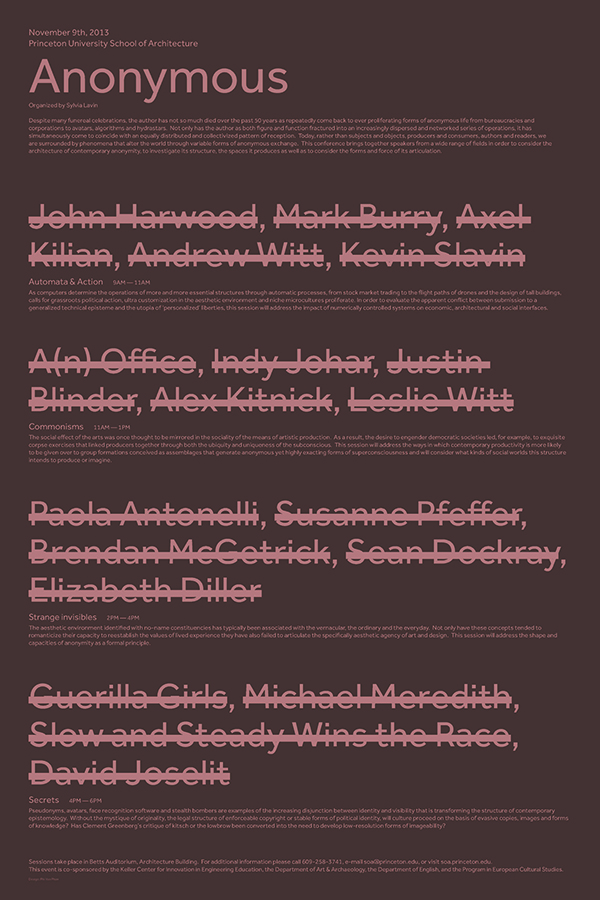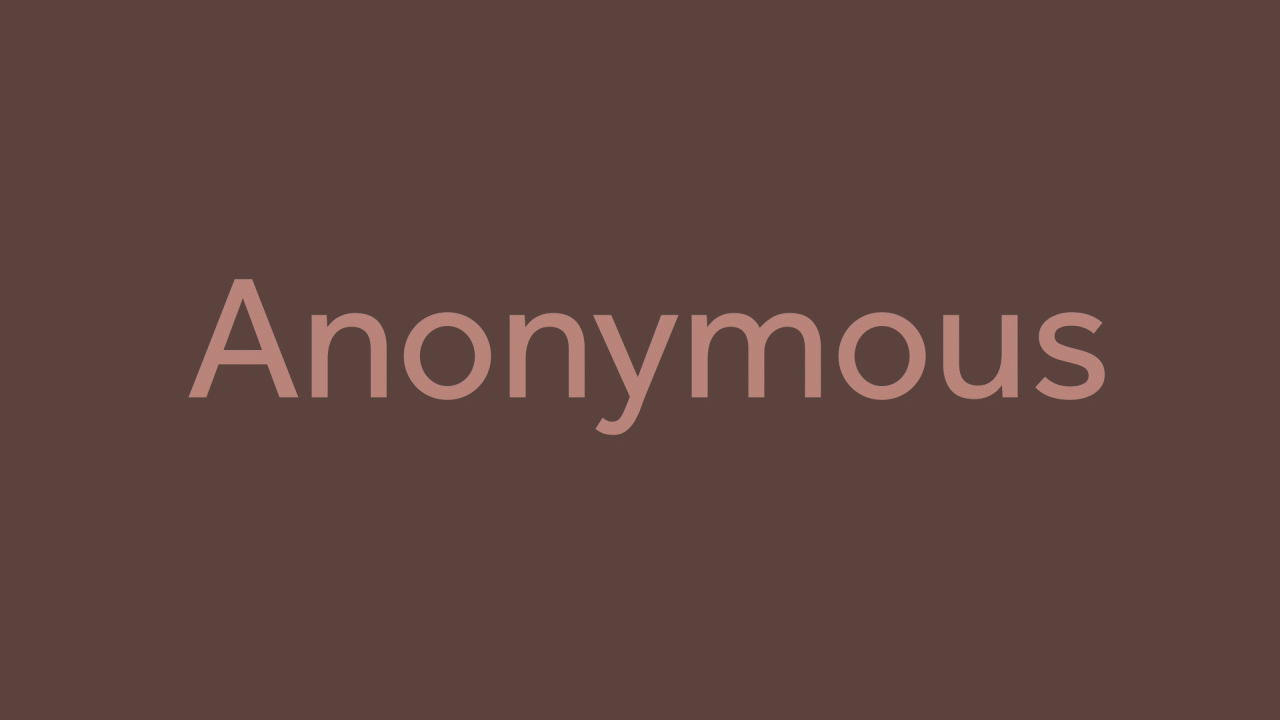Saturday November 9, 2013
Video available now at https://vimeo.com/channels/anonymousconference
Anonymous
Conference organized by Sylvia Lavin
Despite many funereal celebrations, the author has not so much died over the past 50 years as repeatedly come back to ever proliferating forms of anonymous life from bureaucracies and corporations to avatars, algorithms and hydrastars. Today, rather than subjects and objects, producers and consumers, authors and readers, we are surrounded by phenomena that alter the world through variable forms of anonymous exchange. This conference brings together speakers from a wide range of fields in order to consider the ways in which the anonymous is transforming the contemporary cultural environment.
Session 1: Automata and Action (9-11)
As automatic processes increasingly design everything from stock market trading to the flight paths of drones as well as tall buildings, calls for grassroots political action, ultra customization in the aesthetic environment and niche microcultures proliferate. In order to evaluate the apparent conflict between submission to a generalized technical episteme and the utopia of ‘personalized’ liberties, this session will address the impact of numerically controlled systems on economic, architectural and social interfaces.
John Harwood, Associate Professor, Modern and Contemporary Architectural History, Oberlin College
Mark Burry, Professor and Director, SIAL, RMIT University, Melbourne
Axel Kilian, Assistant Professor, Princeton University School of Architecture
Andrew Witt, Director of Research at Gehry Technologies (GT); Lecturer, Harvard University GSD
Kevin Slavin, Assistant Professor, Program in Media Arts and Sciences, MIT Media Lab
Session 2: Commonisms (11-1)
The social effect of the arts was once thought to be mirrored in the sociality of the means of artistic production: desire to engender democratic societies led, for example, to exquisite corpse exercises that linked producers together through both the ubiquity and uniqueness of the subconscious. This session will address the ways in which contemporary production is more likely to emerge from group formations conceived as assemblages that generate forms of superconsciousness and will consider what kinds of social worlds this structure might engender.
A(n) Office
Indy Johar, Architect, and co-founder of 00:/
Justin Blinder, Media Artist, Programmer, and Designer
Alex Kitnick, Visiting Assistant Professor of Art History, Bard College
Leslie Witt, Design for Money Portfolio Lead, IDEO
Session 3: Strange invisibles (2-4)
The aesthetic environment identified with no-name constituencies has typically been associated with the vernacular, the ordinary and the everyday. Not only have these concepts romanticized notions of lived experience but they have also failed to articulate the specifically aesthetic agency of art and design. This session will address the anonymous as a formal operation.
Paola Antonelli, Senior Curator, Architecture & Design, Director, Research & Development, MoMA
Susanne Pfeffer, Artistic Director, Fridericianum, Kassel
Brendan McGetrick, Independent Writer, Editor, and Designer
Sean Dockray, Artist
Elizabeth Diller, Professor, Princeton University School of Architecture; Diller Scofidio + Renfro
Session 4: Secrets (4-6)
Pseudonyms, avatars, face recognition software and stealth bombers are examples of the increasing disjunction between what we see and what we know. This session will explore how culture proceeds without the mystique of originality, the legal structure of enforceable copyright or stable forms of political identity to guarantee a link between image and knowledge or power.
Frida Kahlo, Guerilla Girls
Michael Meredith, Assistant Professor, Princeton University School of Architecture; MOS Architects
Mary Ping, Founder & Creative Director, Slow and Steady Wins the Race
David Joselit, Carnegie Professor, Department of the History of Art, Yale University
Reception in south gallery following the last panel.
This event is co-sponsored by the Keller Center for Innovation in Engineering Education, the Department of Art & Archaeology, the Department of English,and the Program in European Cultural Studies.



























